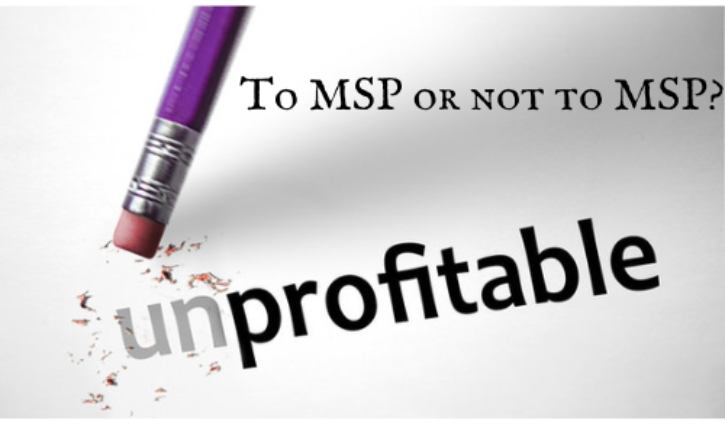As Managed Service Providers (MSPs) have driven adoption in large companies, it has become more difficult to go around them or ignore their reality. Staffing firms need to weigh the pros and cons to determine if partnering with MSPs aligns with their business goals and capabilities.
Our panel of industry experts recently shared their approach to successfully working with MSPs, tackling MSP challenges, keeping up with MSP industry trends, and finding opportunities:
- Kip Wright , Chairman, INSPYR
- Kelly Boykin, Founder, Growth Curve
- Manish Senta, Managing Director, TekWissen
Over the years, many firms have tried to bypass MSPs. But as the use of MSPs has grown in large, enterprise customers, staffing firms focused on that market segment have had to adjust. So how do you know if it’s right for your business? “A well executed MSP strategy can be tremendous in its impact on the growth of your company and a poorly executed plan can actually be devastating to your business,” stated Kelly Boykin, Founder of Growth Curve.
Financial and Operational Impact of MSPs
Let’s first look at the benefits that come with MSPs:
Financial Benefits
Volume and Stability: Managed Service Providers enable staffing firms to work with large clients – including many Fortune 1000 companies. This offers stability even in uncertain times like during COVID-19. Kip Wright, Chairman of INSPYR Solutions highlights that during economic downturns, “MSP business can be more stable, providing a cushion for staffing firms.”
Cost Efficiency: The cost to acquire an order is lower due to scale, with flexible commission structures and the use of offshore/nearshore resources can have a positive impact on profitability. Manish Senta, Managing Director of Tekwissen Group, notes, “Predictability was key for us… if we can build predictability in our model, we can sell the talent to more than one program.”
Expansion Opportunities: MSPs enable growth into new programs, regions, and categories. This enhances opportunities for engineering staffing and IT staffing firms.
Operational Benefits
Scalability: MSP staffing solutions help in creating repeatable processes and using technology to grow efficiently.
Predictability: Data and insights make it easier to foresee business needs and manage pipelines. “You can create a competitive advantage with this ability to scale,” Wright adds.
Risk Mitigation: Wright emphasizes, “Orders are guaranteed to be budgeted and real, so you’re not extending credit to companies that may not be able to pay you.”
Financial and Operational Cons of MSPs
There are some challenges to MSPs as well:
Financial Challenges
Lower Margins: The profitability per order is reduced due to lower mark-ups and aggressive rate cards, and is further impacted by various fees and discounts. Wright notes, “It’s important to look beyond gross profit to understand true profitability.”
Complex Contracts: Detailed contracts with numerous provisions and compliance requirements can be difficult to manage. “Navigating these complex contracts requires significant legal understanding,” Senta mentions.
Operational Challenges
Loss of Control: Staffing firms often lose some control over the hiring process and end-customer relationships. Wright points out, “You don’t have the same influence on the hiring manager. In some cases, you can’t talk to them at all.”
Administrative Burden: Managing MSP account management requirements needs dedicated teams and resources, which can put a strain on other parts of the business. “There can be an administrative burden that goes along with it,” Wright shares.
Cash Flow Issues: The extended payment cycles in MSP programs can affect cash flow. It can be harder for small staffing suppliers.
Strategies for Success in MSP Programs
So, how do you make the most out of MSPs? Here’s what the experts say:
Strategic Planning
Leadership Buy-In: Top leadership’s commitment to the MSP strategy is essential. Clear internal communication about the goals and benefits of working with managed service providers fosters alignment and support throughout the organization. Wright emphasizes, “Proper buy-in from top leadership is essential for success.”
Understanding Programs: Evaluate programs using metrics like fill rates and submission metrics to identify strong and weak programs.
Data-Driven Decisions: Use data to monitor performance and implement a reverse scorecard approach to evaluate MSP programs. This helps identify areas for improvement and promotes better collaboration with MSP leaders.
Operational Execution
Dedicated Teams: It’s important to have separate sales and delivery structures for MSP programs. Wright notes, “Operating these programs requires a very different mindset and that includes a separate sales and delivery structure.” By separating the business models, staffing firms can more effectively grow their MSP programs without impacting the growth of their current business. This approach helps in managing them effectively.
Proper Training: Train your staff to understand MSP structures and goals. They should see MSPs as partners, not adversaries. This includes learning about the unique needs and expectations of MSP staffing solutions. Senta emphasizes that “flawless execution is what makes money in this business.”
Exiting Unsuccessful Programs
Decision Discipline: Identify and exit programs that don’t fit the business model early. Focus on successful ones. Senta advises, “When someone is giving you a chance, please be very careful which opportunity you take.”
Leveraging Data and Relationships
Effective management of data and building strong relationships are very important components for success in MSP programs. Here’s what you need to do:
Build Relationships
Establishing trust and credibility with Managed Service Provider leaders is essential. How can this be done? By understanding their needs and consistently keeping promises, firms can build strong connections.
Additionally, differentiation is key. With 25,000 staffing firms in North America, making a strong first impression and consistently meeting expectations are key to standing out.
Utilize Data Effectively
Effective use of data is vital for MSP performance monitoring and continuous improvement. Wright suggests using the 1% rule to achieve significant progress over time by making steady, incremental improvements.
Another important aspect is reverse score-carding. This involves evaluating MSP programs by providing feedback and insights to MSP leaders. This can promote better collaboration.
Strategic Decision Making
Making informed strategic decisions is vital if you want to align business models with MSP programs to generate long-term success. So how do you do that? First off, develop a business model specifically for MSP programs. Focus on optimizing speed and quality.
Also, make strategic choices to leave programs that don’t benefit the business. Boykin emphasizes this point, “Identifying the programs you can’t be successful in and exiting them quickly is a positive thing for everyone, and it will allow you to focus and drive success in the rest of your programs.”
Leaving programs early that don’t match the company’s goals allows a focus on more successful ventures. Senta notes, “There is nothing wrong with exiting a program that does not serve you. It shows good business acumen that you understand the business and can step back when it is not working out.”
The Experts’ Advice for Staffing Firms
1. Structured Approach
Follow a structured approach when entering MSP programs. This includes a thorough analysis of current customers and profitability.
Wright says that “organizations need to go through a structured approach before they get into the nuances of how they’re going to operate this.”
Understand the strategic fit of MSP programs and make informed decisions about which ones to join – particularly in engineering staffing and IT staffing sectors.
2. Utilize Resources
Leverage available resources and experts for strategic planning for MSPs and execution. Engaging with industry experts, like those from TechServe Alliance, can offer valuable insights and guidance.
Wright highlights the importance of using resources: “There are experts in the market like Kelly Boykin, whose business is to help companies step back strategically, look at this, go through the process, analyze the current customer base, and then go into the process of really saying, how am I going to build and execute on this?”
Future Success in MSP Staffing Solutions
Moving through the MSP landscape takes strategic planning, data-driven choices, and strong relationships.
For continuous growth, participate in industry events and seek expert advice (there’s always something new to learn!). Use these strategies to thrive in the MSP space and achieve long-term growth and stability in recruiting.
TechServe Alliance members can view the full webinar here. Not a member yet? Join us to attend webinars like this along with more great content and benefits today!












